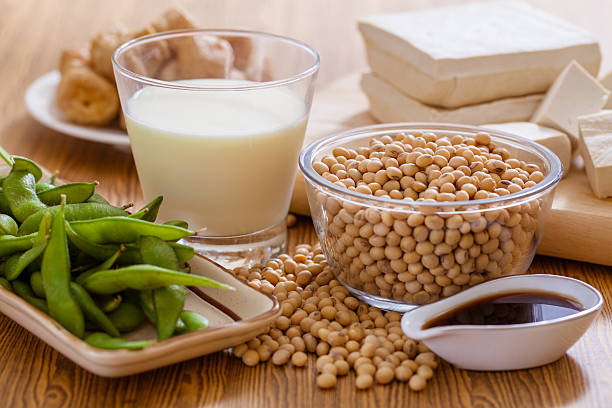Get Easy Health Digest™ in your inbox and don’t miss a thing when you subscribe today. Plus, get the free bonus report, Mother Nature’s Tips, Tricks and Remedies for Cholesterol, Blood Pressure & Blood Sugar as my way of saying welcome to the community!
Soy metabolite may prevent dementia damage to the brain

Do you love soy milk, edamame, miso or even tempeh? Can’t wait to get home to make your tofu stir-fry for dinner? Well, I’ve got good news for you!
Those soy products you love so much might not just be offering you a tasty meal; they could also be offering you significant protection from dementia, thanks to a metabolite that’s produced by the gut when you consume soy.
But, there is a catch…
Here’s what we know about how soy works to decrease dementia risk and the one reason it may not work in your case.
Fewer white matter lesions
In research published in Alzheimer’s & Dementia, scientists examined brain magnetic resonance imaging (MRI) scans for white matter lesions, which are hallmarks of cognitive decline and dementia, in 91 elderly participants.
They also tracked each person’s blood serum levels of a compound known as equol.
Equol is a metabolite produced by certain gut bacteria when they break down foods and drinks that contain soy.
And guess what…
People with the highest equol levels had 50 percent fewer white matter lesions than those with the lowest levels.
The researchers believe equol works against dementia by improving arterial stiffness associated with white matter lesions and increasing mitochondrial function later in life.
That’s right — if your gut bacteria turn soy isoflavones into equol, you could keep your arteries flexible, energize the powerhouses of your cells and lower your volume of white matter lesions — all adding up to a reduced risk of cognitive decline, dementia and even death from all causes.
Not bad!
But, here’s where that catch comes in…
Do you have the right bacteria?
You see, not everyone’s gut bacteria can make equol from soy.
In fact, according to the research team that conducted the study, Japanese populations have more gut microbiota well-suited to produce soy metabolites, compared to Americans, due to higher consumption of dietary soy.
While 40 to 70% of Japanese individuals harbor gut bacteria that can convert dietary isoflavones into equol, only 20 to 30% of Americans possess the same gut bacteria.
And since it looks like the ability to produce equol from soy isoflavones is the key to unlocking the protective health benefits of a soy-rich diet, if your gut bacteria can’t make it, does it mean you’re out of luck?
Well, not necessarily.
Since it’s challenging to determine whether you have or don’t have those equol-generating gut bacteria, enjoying the soy you love is a safe choice.
You can get more soy in your diet by:
- Choosing soy-based proteins to add to your chilis, soups and stews
- Adding soy nuts to your brownies and cookies
- Making tacos using flavored tofu that has been pre-browned
- Opting for soynut butter in place of peanut butter
- Making your breakfast smoothies with soy milk
Although the researchers say that more studies are needed to determine if equol supplements can be formulated to deliver the same neuroprotective effects, for now, soy isoflavone supplements are available that can be added to your diet.
Editor’s note: While you’re doing all the right things to protect your brain as you age, make sure you don’t make the mistake 38 million Americans do every day — by taking a drug that robs them of an essential brain nutrient! Click here to discover the truth about the Cholesterol Super-Brain!
Sources:
Soy Products Reduce Risk for Dementia — Physicians Committee for Responsible Medicine
Bacterial metabolism of dietary soy may lower risk factor for dementia — ScienceDaily













